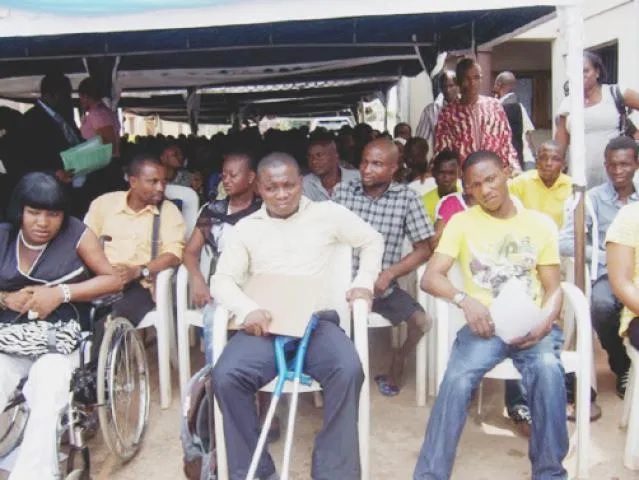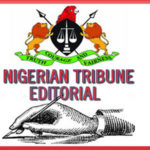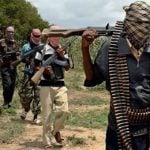Disability is one of the very conflicting deviances in humanity. By what it is, disability has multi-leveling and multiple perspectives as a concept, depending on the angles from which it is being addressed, the factors surrounding it and the target. For example, it could be seen from the side of impairment to organs of the body, thus limiting the victim to optimally performing the tasks the affected organ is naturally made to perform. It could also be factored from the perspective of societal inclination, limiting the ability of persons with a disability beyond the effect of the condition itself. From a liberal perspective, disability is seen as another variation in creation.
Regardless of these perspectives, it has been affirmed that as much as impairment or developmental deviance in the human body’s organs brings about disability, the lack of an enabling environment does so even more. The enabling environment here posited refers to every piece of machinery that stands to complement the shortage of organic variation. Better still, all provisions required to appropriately cater for peculiar individual needs to explore potential effectively, regardless of the impairment or developmental deviance.
This might be in terms of language, such as hand signing for the deaf and Braille for the blind, where there are curriculum adaptations, special education trainings and personnel, among many other provisions that improve access.
While recognising the impact of a disability on the victim, it is noteworthy that the impairment that caused the disability is disproportionately magnified in Nigeria, while the influence of disabling environments on the victim is underrated or ignored. Over the years, the need to educate and ensure that persons with disabilities are exposed to vocational rehabilitation geared towards independent living and socio-economic empowerment has been brought forward at many fora. Essentially, Nigeria’s social and educational policies have given mandates to state governments to ensure the positive well-being of citizens with disabilities. Unfortunately, lofty objectives, goals and enormous input of both financial and human resources into children with disabilities’ structural development are yet to achieve their aim. It is an open secret that educational funding in Nigeria is meagre compared to what is required for a developing nation’s education sector. However, there is no gainsaying the fact that the Nigerian government, at all levels, is striving even with the little funds available to meet the educational needs of her citizenry, especially those with special needs, by building special schools, rehabilitation and vocational centres, libraries, training and retraining of special teachers and equipping dormitories, among other needs. It is saddening that the objectives of establishing and funding special needs schools, training and retraining of special teachers, as well as government’s efforts towards developing education and the psychosocial well-being of learners with special needs, is yet to be fully achieved.
Over the last decade, evidence of the government’s commitment towards developing learners with special needs’ education has abounded across the various states in Nigeria. For example, among many other visible improvements in physical infrastructures in special schools in the country, Nasarawa State under the former governor’s leadership (now Senator Umaru Tanko Al-Makura), established a special school that could accommodate more learners with various special needs and provide opportunities for special education teachers. Sadly, up until now the supposed output of the school is still questionable. One may at this point not put the blame for the ineffectiveness of the teachers or underachievement of the learners in the school on the government, but rather on the hierarchy of the school administrators. Hence, it is pertinent to query the leadership style and organisational commitments of the administrators in special schools in Nigeria. How well do special school administrators manage both material and human resources towards building total and independent persons with special needs? Are administrators in Nigerian special schools ensuring healthy work-environments for teachers of learners with special needs who work under stressful conditions whilst engaging with learners? How harmonious are the working relationships between school administrators, teaching and non-teaching staff and the host communities? What about special school administrators’ attitudes towards their subordinates, which negatively impact both teachers and learners’ productivities?
Based on the foregoing, unlike many quarters that have blamed retrogression of learners in special schools on governments’ attitudes and funding, one may need to take a cursory look at the management of the resources provided by both government and non-governmental agencies vis-à-vis how administrators of the various special educational facilities are managing both human and material resources. In addition to taking a critical look into the required certification and socio-emotional intelligence needed to be an administrator in a special school, the role of personal relationships in the appointment and reappointment of administrators for special schools should be given the much needed and adequate attention. Consequently, efforts towards removing all forms of barriers in the education of persons with special needs should be initiated and fostered by appropriately qualified special needs educators with proven leadership and socio-emotional intelligence skills. Accessibility to the environment must be prioritised and guaranteed; public perception with regards to disability and victims must be disability-compliant; qualified personnel must be properly engaged in the business of disability management; the government must be empathetic, responsible and responsive to disability matters, and enabling laws must be enacted and appropriately implemented. These form part of the ‘magic’ our nation is missing in disability matters. They are simple possibilities that need concerted and sincere effort to be put in place. Disability is not inability, but rather ‘This Ability’.
Dr Adigun is of the Department of Special Education, University of Ibadan.
YOU SHOULD NOT MISS THESE HEADLINES FROM NIGERIAN TRIBUNE
#EndSARS: As British Parliament Hears Petition, UK Govt Says It Won’t Speculate On Sanctions
The British Parliament at the Westminster Hall held a debate on ‘e-petition 554150, relating to Nigeria and the sanctions regime’ on Monday. The government of the United Kingdom has however responded…Complicating disability Complicating disability
2023 Presidency: APC Govs’ Meeting With Jonathan Sparks Controversy
The surprise visit made on Friday night by the leaders of the ruling All Progressives Congress (APC) to former President Goodluck Jonathan at his residence in Abuja triggered a stir in the major political camps, resulting in at least four possible theories..Complicating disability Complicating disability






